Music has a unique way of touching our hearts and minds, and introducing children to music at a young age can have lasting, transformative benefits. Many parents wonder: What’s the ideal age for kids to start music lessons?
The reality is, there's no one-size-fits-all answer– and that’s okay.
By understanding the developmental milestones and unique needs of children at different stages, you can make the best decision for your little one.
To help you in the process, we’ll take a closer look at when it might be ideal to begin music lessons. Along the way, we’ll explore the benefits of early musical education and how to assess your child’s readiness.
We’ll also offer insight into how Sound Artist Music & Handpan School's programs are designed to support every age group, ensuring that your child steps into their musical journey with joy and success.
Why Early Music Education is Beneficial
The benefits of music education go far beyond just learning to play an instrument. Research shows that music enhances brain development, improves memory, and supports emotional regulation.
Early exposure to music can also promote better social skills, increase concentration, and build self-confidence.
-
Cognitive Benefits: Music stimulates areas of the brain related to learning, memory, and problem-solving. It helps children develop listening skills, attention span, and coordination.
-
Emotional Benefits: Through music, children learn to express their feelings, improve self-regulation, and build empathy with others.
-
Social Benefits: Playing music with others fosters teamwork and communication, helping children build relationships and confidence.
At Sound Artist Music & Handpan School, we understand the powerful impact music can have on young minds. And we offer programs that nurture both the musical and emotional growth of every child.
Ideal Age to Start Music Lessons
Each child is unique, and the best time to start music lessons depends on both their developmental stage and personal interest. However, there are certain age ranges where music education can have the most significant impact.
Here's a breakdown of the ideal age to begin music lessons:
1. Early Beginnings (Ages 2-5)
Starting music lessons at a very young age is becoming increasingly popular, and for good reason! At this stage, children are naturally curious and eager to explore their world through sound, movement, and play.
This early exposure is a powerful catalyst for neuroplasticity, the brain's remarkable ability to form new connections.
Engaging with music through sound and movement also directly supports the development of neuromuscular coordination, the intricate partnership between the brain and muscles that is fundamental to playing any instrument. While traditional lessons may not be practical for this age, music can still be introduced in a fun, interactive way through:
-
Music playgroups or preschool music classes: These classes focus on basic rhythms, singing, and simple instruments (such as tambourines or maracas).
-
Rhythm games: Simple clapping or tapping along to a song helps develop a sense of timing and coordination.
-
Exposure to different sounds: Playing various types of music and letting children experiment with different instruments builds a love for music early on.
Benefits of starting this young include improved coordination, language skills, and the development of auditory discrimination, which lays a foundation for future music lessons. However, the focus at this stage is more about developing a love for music rather than formal instruction.
2. Primary School Years (Ages 6-7)
For children in this age range, formal music lessons can start to take shape. By now, children are able to focus for longer periods, and they have developed the necessary motor skills to handle simple instruments like the piano or recorder. Music programs for this age group typically focus on:
-
Learning to read music: Basic note recognition and rhythm reading.
-
Introductory instrument lessons: Piano, guitar, or even voice lessons can be a good fit.
-
Simple songs and repetition: Playing familiar songs helps develop confidence and mastery.
Starting lessons at this age gives children enough time to grow into their musical abilities and provides ample opportunities for exploration and learning. Children who start at this stage tend to progress more quickly as they develop a deeper understanding of musical concepts.
3. Tweens and Teens (Ages 8 and up)
While it’s ideal to start earlier, many children start music lessons in their tween or teen years, especially if they show a strong interest in a particular instrument or genre. At this age, kids often have the patience, focus, and motivation to dedicate time to practicing and mastering their instruments. This is a great age for:
-
In-depth lessons: Focusing on one instrument, whether it’s piano, guitar, violin, or drums.
-
Advanced theory: Understanding more complex musical ideas such as harmony, melody, and improvisation.
-
Ensemble playing: Joining school bands or orchestras helps children develop teamwork and rhythm.
Starting lessons at this age allows children to go deeper into the art of music-making and develop their individual style.
Sound Artist Music & Handpan School Programs for Every Age Group
At Sound Artist Music & Handpan School, we offer specialized programs for every stage, ensuring that your child receives the right support at the right time.
Whether your child is just beginning to explore sound or is ready to dive deeper into more advanced techniques, we have the perfect program to meet their needs. Here’s a breakdown of our music programs by age group:
1. Music Is Play (2-3.5 Year Olds)
For our youngest learners, Music Is Play provides a fun and interactive way to explore rhythm, sound, and movement. At this age, children engage with music through games, songs, and simple instruments, helping them develop coordination and listening skills while fostering creativity.
It’s the perfect introduction to music, setting a strong foundation for further learning in the future.
2. Music Friends (3.5-5 Year Olds)
As children grow, they are ready for more structured musical activities. Music Friends introduces young learners to melodies, rhythms, and basic music concepts through songs, games, and fun activities.
This program helps children improve their listening and concentration skills, while also encouraging teamwork and social interaction through group activities.
3. Melody Makers (5-6 Year Olds)
In Melody Makers, children begin learning the basics of music theory and note reading, laying the foundation for future music education. This program helps kids build their rhythm, listening, and motor skills while they explore their musical creativity.
It’s an excellent next step as they transition from basic play to learning more structured concepts.
4. Elementary School Programs (Ages 6-10)
By elementary school age, children are ready to dive deeper into music. Our Elementary School Programs provide both individual and group lessons to help students develop musical technique and knowledge.
This is the perfect time to introduce an instrument (such as the handpan, piano, or guitar) and begin exploring music theory in a more structured environment. Students also engage in ensemble playing, promoting collaboration and teamwork.
5. Middle School Programs (Ages 11-13)
Middle school students benefit from more advanced music lessons, and our Middle School Programs are designed to refine their musical skills. At this stage, students explore more complex music theory, work on technique, and learn to express their creativity through music.
They also participate in ensemble groups and have opportunities to perform, which builds their confidence and prepares them for high school-level music education.
6. High School Programs (Ages 14+)
Our High School Programs focus on helping teens refine their skills and develop their unique musical voice. Students learn advanced techniques, composition, and performance while having the freedom to explore different genres and styles of music.
This program encourages students to push their creative boundaries, whether they plan to pursue music professionally or simply deepen their passion for the art.
7. Creative Music Ensemble
For students of all ages who enjoy collaborative music-making, the Creative Music Ensemble is the perfect program. In this group setting, students come together to create original compositions, improvise, and perform as a team.
It’s an opportunity to learn the art of group music-making while fostering creativity and musical expression.
8. Workshops & Music Circles
Our Workshops & Music Circles offer interactive, hands-on experiences for students of all ages. These sessions provide a unique opportunity for children, teens, and adults to explore different instruments and styles of music in a supportive and welcoming environment.
Whether experimenting with handpans, percussion, or other world instruments, workshops are a great way to engage with music in a community setting.
How to Tell if Your Child is Ready for Music Lessons
It’s not just about age—children also need to be developmentally ready for music lessons. Here are some signs that your child might be ready to start formal music lessons:
-
Interest in music: If your child loves listening to music, singing along, or mimicking sounds, it may be a sign they’re ready for lessons.
-
Attention span: Can your child focus for 10-15 minutes at a time? This is an important factor when it comes to learning an instrument.
-
Motor skills: Depending on the instrument, children should have the basic hand-eye coordination needed to play. For example, piano students need to be able to press keys, while string players need to handle a bow and finger placement.
-
Emotional readiness: Your child should be open to following instructions and practicing at home, even if for short periods.
If you’re not sure whether your child is ready, consider scheduling a trial lesson or a consultation with an experienced music teacher to assess their interest and abilities.
Choosing the Right Music Program for Your Child
The right music program will make all the difference in developing your child’s love for music. Look for programs that:
-
Are age-appropriate: Programs should be designed with your child’s developmental stage in mind.
-
Focus on fun: Music lessons should feel like a joy, not a chore. Look for teachers who make lessons engaging and playful.
-
Encourage creativity: Good programs balance structured learning with room for creative expression and exploration.
At Sound Artist Music & Handpan School, we offer customized lessons that cater to kids of all ages, nurturing both their technical skills and creative expression. Whether your child is just beginning or has a few years of experience, we provide a supportive environment where they can grow and discover their musical voice.
Conclusion
Introducing your child to music at an early age opens the door to a world of cognitive, emotional, and social growth. Whether it’s through developing listening skills, expressing their emotions, or learning to collaborate with others, music provides a foundation for lifelong learning and personal development.
At Sound Artist Music & Handpan School, we believe in the power of music to nurture and inspire children at every stage. Ready to see how music can transform your child’s life?
Schedule Your Free 30-minute Music Session today and let us guide your child on their musical journey.


